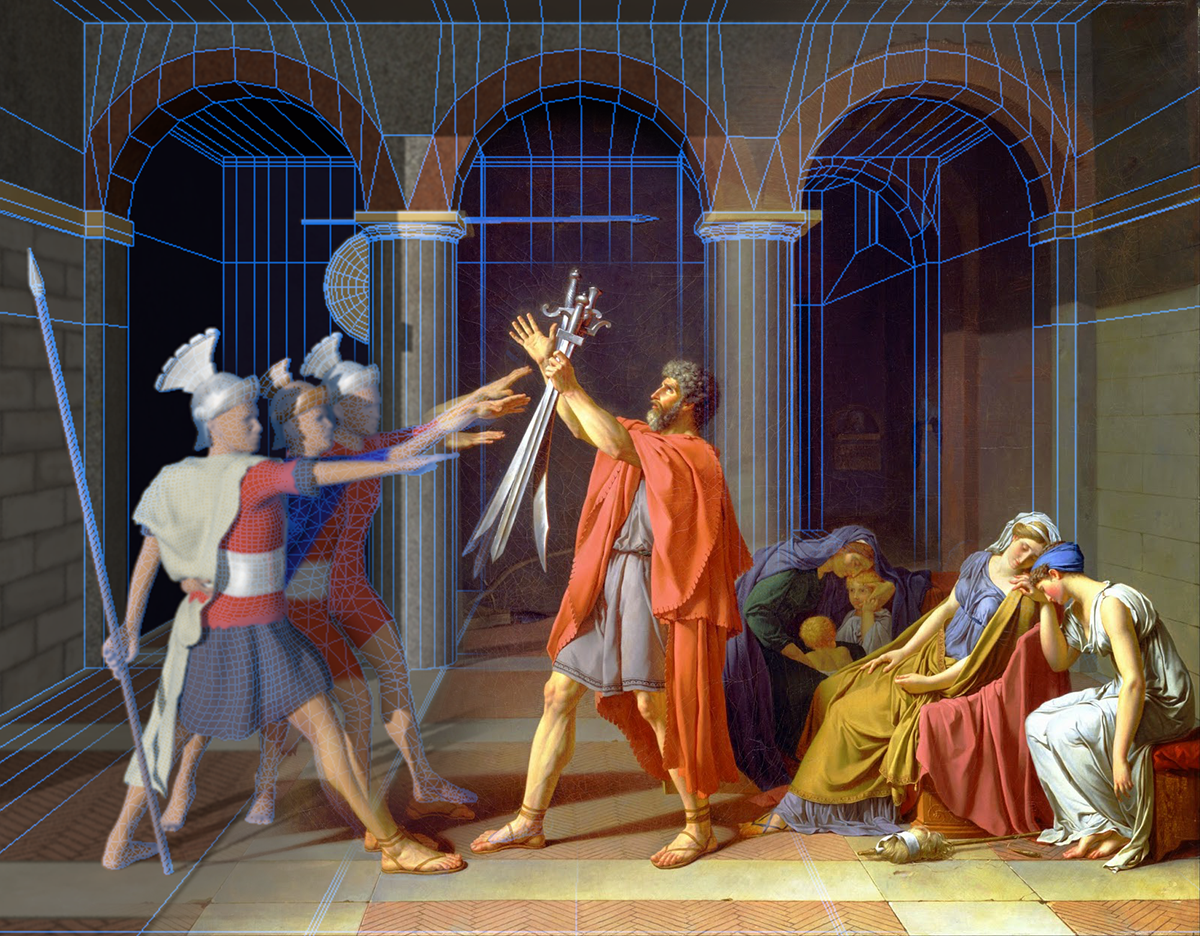Zachary Winegardner
MFA Candidate
The Ohio State University
This research is being conducted to investigate the question of “how can digital design tools and critical making uncover and inspire the presentation of complex information in classical paintings?” This approach is practice led research, in which a process of making serves as the primary generation of methods of inquiry and new information about the subject matter. This process consists of a series of technical creations culminating in a design research artifact. The artifact itself is a 3D virtual environment that mimics the scene represented in Jacques Louis David’s neoclassical painting, Oath of the Horatii. The artifact is able to both generate new questions and serve as a means to investigate them. One example of this is the posing of proportional human models to match the painting’s posed figures. Curiosities and discrepancies took form during this attempt and warranted further investigation. By using the 3D scene with an overlaying image plane of the painting to compare arm lengths, I was able to evaluate the comparison between the painting’s proportions and correct 3D human proportions to discover that David greatly manipulates his figures.
This study is significant to me because the process of making in a 3D medium generated questions that I would not normally find myself asking, and the further investigation of these questions through making led to new information on a painting that I was already very familiar with. This demonstrates how critical making can lead to new knowledge for design researchers. It is also significant in educational spaces by exemplifying a process in which the method of discovery can influence the presentation of information. The experiential learning occurring in this research will be carried through into the design of the presented artifact, which will aid in the understanding of complex paintings.
This research was presented at the Design Incubation Colloquium 3.3: Kent State University on Saturday, March 11, 2017.
